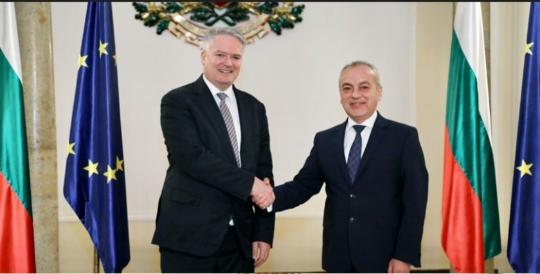Bulgaria
Latest News
On 25 January 2022, the OECD Council decided to open accession discussions with Bulgaria. This follows careful deliberation by OECD Members on the basis of its evidence-based Framework for Consideration of Prospective Members and the progress made by Bulgaria since its first request for OECD membership.
An individual roadmap for the detailed assessment process has been prepared in line with the values, vision and priorities reflected in the OECD’s 60th Anniversary Vision Statement OECD’s 60th Anniversary Vision Statement and the Ministerial Council Statement adopted in 2021.
About Bulgaria
Economy
Bulgaria experienced a turbulent transition in the 1990s, but today it is one of the most fiscally disciplined EU states. During the first decade of the century, average annual growth accelerated and the country built fiscal buffers, all the while reducing its public debt, which is one of the lowest among EU members.
To boost productivity and close the gaps with EU levels of prosperity, Bulgarian policy makers place an emphasis on education, innovation, regulatory certainty, competition and the judiciary.
Co-operation with the OECD
Bulgaria has co-operated with the Organisation via thematic initiatives and a country-specific programme since the early 1990s. This co-operation has been developing through the years based on demand and mutual benefit. Bulgaria has been active in the OECD SEE regional programme and has participated in statistical reporting and information systems, benchmarking exercises such as the Programme for International Student Assessment (PISA), publications and policy reviews.
During this period, Bulgaria repeatedly expressed interest in an OECD accession, including by its Minister of Foreign Affairs in 2015 and by President Radev as well as by several Prime Ministers. The preparation for accession to the OECD is co-ordinated by a dedicated inter-ministerial committee and was included as one of the priorities in the Government Programme for Stable Development for the period 2014-2020.
Bulgaria’s commitment to joining the OECD was reiterated during the visit of OECD Secretary General Cormann to Sofia in April 2023. During the visit, Bulgaria reaffirmed that OECD accession remains a cross-party priority.

(Pictured L-R): OECD Secretary-General, Mathias Cormann, and Mr. Galab Donev, Bulgarian Prime Minister, 4 April 2023, Sofia, Bulgaria
Participation in OECD Bodies and adherence to OECD standards
Bulgaria’s engagement with the OECD has also encompassed participation in OECD bodies and legal instruments. Through this form of co-operation, Bulgaria has benefited from and contributed to dialogue with senior officials from member and partner countries to advance ideas and review progress in specific policy areas.
Bulgaria was among the first non-OECD Members to accede to the OECD Convention on Combating Bribery of Foreign Public Officials in International Business Transactions in 1999. In 2016, Bulgaria accepted the OECD invitation to participate in the G20/OECD Project on Base Erosion and Profit Shifting of the Committee on Fiscal Affairs as an Associate. In the field of taxation, Bulgaria is a member of the Global Forum on Transparency and Exchange of Information for Tax Purposes. Bulgaria has joined the Convention on Mutual Administrative Assistance in Tax Matters, the Multilateral Agreement on Exchange of Information for Tax purposes and signed the Multilateral Convention to Implement Tax Treaty Related Measures to Prevent Base Erosion and Profit Shifting (BEPS). The BEPS Convention entered into force on 1 January 2023.
In view of its OECD accession process, Bulgaria can now participate in all OECD bodies and instruments.
OECD publications focusing on or featuring Bulgaria
Related Documents

